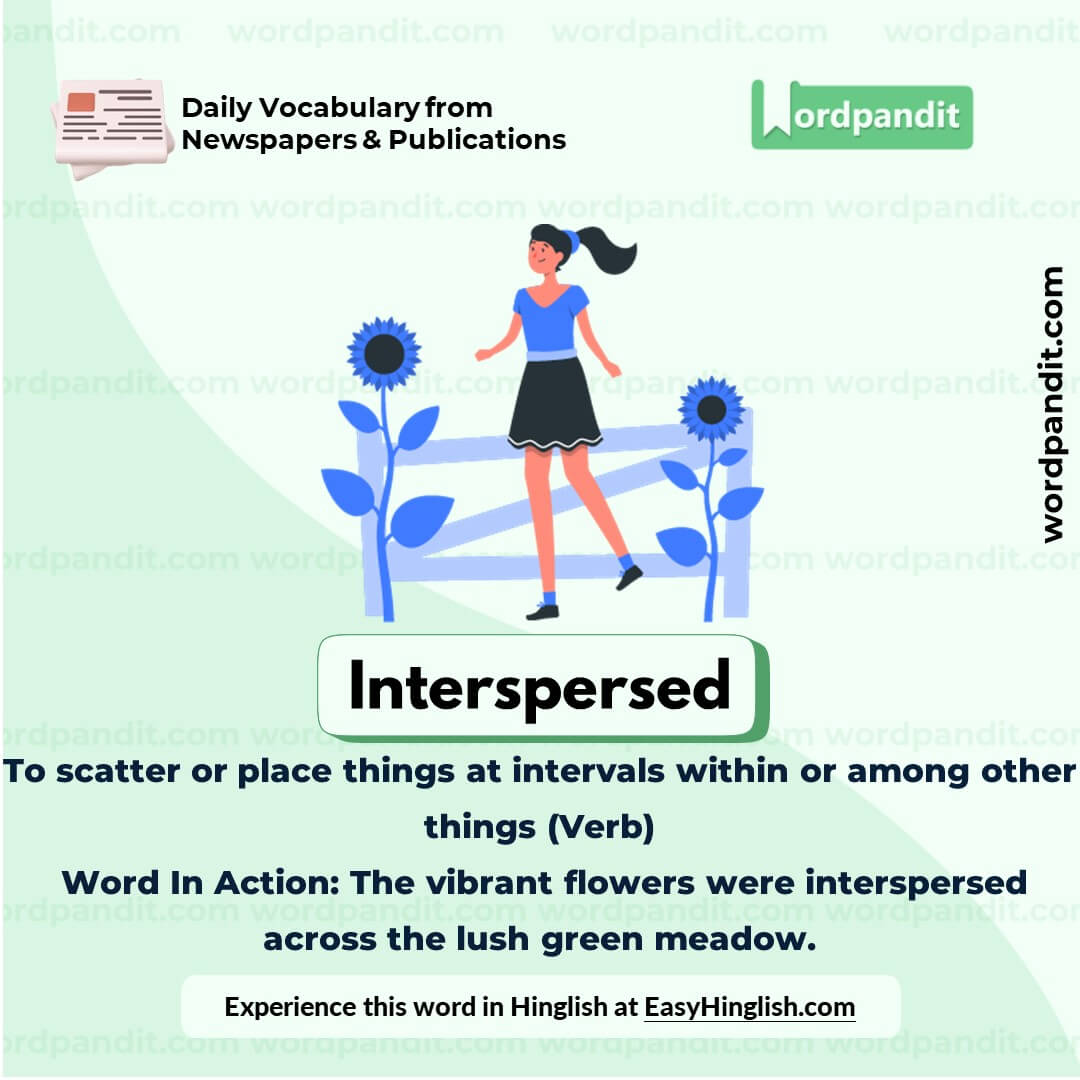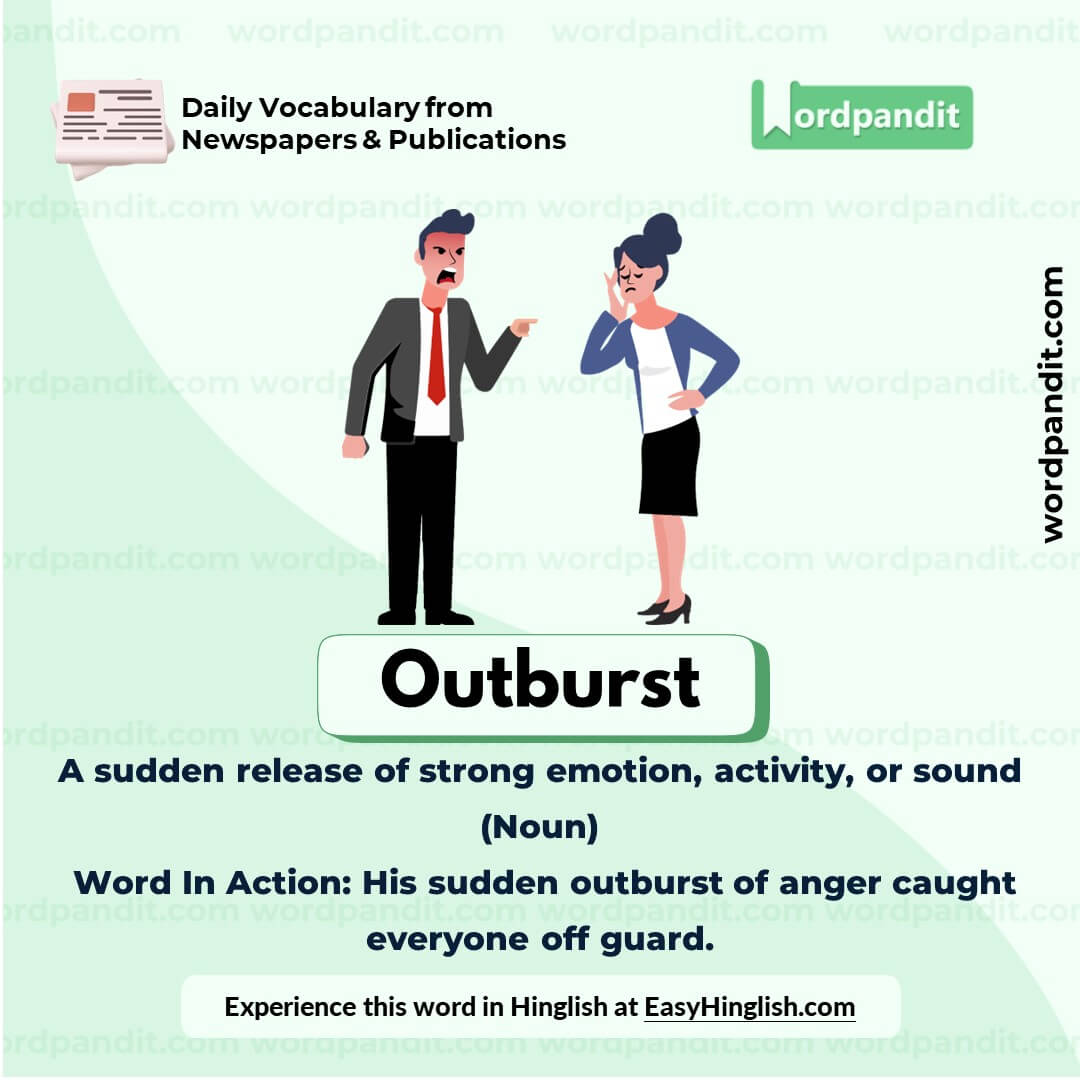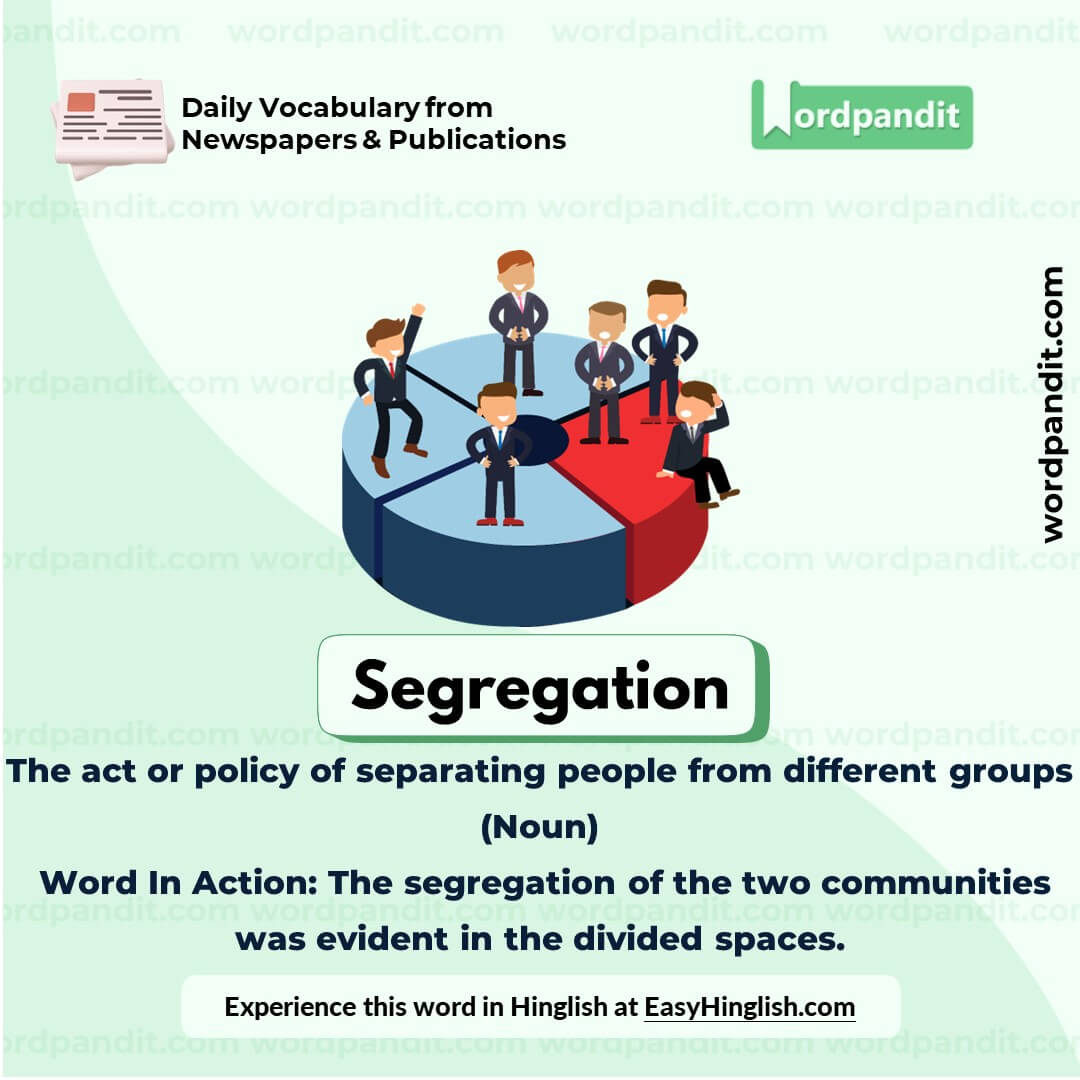Daily Vocabulary from International Newspapers and Publications
Expand Your Vocabulary with Wordpandit’s Global Vocabulary Hub
At Wordpandit, we are committed to helping you develop a truly global vocabulary by drawing from some of the most respected international publications. This section is designed to keep you ahead of the curve by introducing you to words that define global conversations and trends.
The Power of Global Sources
To help you think and communicate on a global scale, we curate vocabulary from renowned international sources, such as:
- The New York Times
- The Washington Post
- BBC
- The Guardian
- The Economist
- Scientific American
- Psychology Today
- And many more...
Stay Global, Stay Competitive
Our daily updates from international publications ensure you are consistently exposed to new words that reflect global news and developments, making sure your vocabulary is not only current but also globally relevant.
Enhance Your Global Perspective
Whether you’re preparing for international exams, aiming to excel in global business communication, or want to enhance your language skills for personal growth, Wordpandit offers the resources you need to thrive in a global context.
Effective Learning, Global Reach
Our learning methodology combines global examples, memory aids, and interactive activities, allowing you to internalize new words effectively and apply them in real-world scenarios.
Begin Your Global Vocabulary Journey Now!
Why Choose Wordpandit?
Practical Learning: Focus on words you'll actually encounter in real-world reading, enhancing your comprehension and communication skills.
Diverse Content: From current affairs to scientific breakthroughs, our varied sources expose you to vocabulary across multiple domains.
Effortless Integration: Make Wordpandit a part of your daily routine. Just a few minutes each day can significantly boost your lexicon over time.
Your Path to Vocabulary Mastery
- Visit our Daily Vocabulary section regularly
- Explore new words and their usage in context
- Practice incorporating these words into your own writing and speech
- Track your progress as your vocabulary expands
Start Your Journey Today
Embark on your vocabulary enhancement journey with Wordpandit. By consistently engaging with our daily posts, you'll build a robust vocabulary that serves you well in academic, professional, and personal contexts.
Remember, a word a day keeps linguistic limitations at bay. Make Wordpandit your daily companion in the quest for vocabulary excellence!
WORD-1: Vaunted
Context:
"I would have bought a ticket for the chance to see what labs at a vaunted university were doing behind secured doors, but instead they were paying me for it." - Aeon
Explanatory Paragraph:
The word "vaunted" describes something or someone that is highly praised or boasted about, often with an implication that the praise may be exaggerated. It conveys admiration, though sometimes with a hint of skepticism about the level of acclaim.
Meaning: Highly praised or boasted about, especially in a way that may seem excessive (Adjective).
Pronunciation: vawn-ted
Difficulty Level: ⭐⭐⭐ Intermediate
Etymology: Derived from the Middle French word "vanter," meaning "to boast," which itself comes from the Latin "vanitare," related to "vanus" (empty, vain).
Synonyms & Antonyms:
Synonyms: Celebrated, acclaimed, renowned, touted
Antonyms: Overlooked, ignored, underrated, obscure
Usage Examples:
- The vaunted technology of the new smartphone turned out to be underwhelming in practice.
- She joined the ranks of the vaunted alumni who had gone on to achieve great success.
- The vaunted athlete faced criticism after failing to perform as expected in the championship.
- Critics questioned whether the vaunted reforms would truly benefit the public as promised.
Cultural Reference:
"Vaunted" often appears in discussions of prestigious institutions, such as Ivy League universities or elite organizations, where their reputation precedes them, sometimes creating unrealistic expectations. For example, Harvard is frequently vaunted as the pinnacle of academic excellence. - General Observation
Think About It:
Do you think the widespread admiration for certain institutions or individuals often blinds people to their flaws?
Quick Activity:
Write a short paragraph describing a vaunted product or person and include whether they lived up to the hype in your opinion.
Memory Tip:
Think of "vaunted" as "vaunting their virtues"—they are showing off their greatness, whether deserved or not!
Real-World Application:
"Vaunted" is commonly used to critique or describe the reputation of institutions, people, or products that have received significant praise, especially in reviews, journalism, and discussions of cultural phenomena.
WORD-2: Solemn
Context:
"The morning solemnity interspersed with outbursts of underground performances and conductor announcements." - Aeon
Explanatory Paragraph:
The word "solemn" is often used to describe something serious, formal, or marked by deep sincerity. It can refer to events, expressions, or atmospheres that convey gravity or earnestness. In the context of the sentence, "solemnity" conveys a quiet and serious mood, contrasting with sudden interruptions of liveliness.
Meaning: Serious and formal in manner, behavior, or expression; marked by deep sincerity. (Adjective)
Pronunciation: SOH-lum
Difficulty Level: ⭐⭐⭐ Intermediate
Etymology: Derived from the Old French "solempne," meaning ceremonious or impressive, and from the Latin "solemnis," meaning customary or celebrated.
Synonyms & Antonyms:
Synonyms: Serious, grave, earnest, dignified, somber
Antonyms: Cheerful, playful, lively, casual, lighthearted
Usage Examples:
- The principal's solemn tone made the gravity of the situation clear to everyone.
- The couple exchanged solemn vows under the soft glow of candlelight.
- The memorial service was a solemn occasion, marked by moments of deep reflection.
- Despite the solemn atmosphere in the courtroom, a quiet sense of justice prevailed.
Cultural Reference:
"A solemn promise is a cornerstone of trust in many cultures, underscoring the seriousness of one's word." - Anonymous
Think About It:
Why do solemn occasions often evoke a sense of unity and shared purpose among people?
Quick Activity:
List three occasions where a solemn tone is essential. Briefly explain why seriousness is important in those contexts.
Memory Tip:
Think of "solemn" as "SO"-serious and "LEMN"-like a solemn hymn sung with sincerity and gravity.
Real-World Application:
The word "solemn" is often used in legal, ceremonial, or reflective contexts, such as solemn oaths in court, moments of silence, or formal declarations.
WORD-3: Interspersed
Context:
"The morning solemnity interspersed with outbursts of underground performances and conductor announcements." - Aeon
Explanatory Paragraph:
The word "interspersed" refers to the act of scattering or placing things at intervals within something else. It is commonly used to describe moments, items, or features that are spread throughout a broader setting. In the context of the sentence, it suggests that the solemnity of the morning was punctuated by occasional bursts of activity, like performances or announcements.
Meaning: To scatter or place things at intervals within or among other things. (Verb)
Pronunciation: in-ter-SPURST
Difficulty Level: ⭐⭐⭐ Intermediate
Etymology: From the Latin "interspersus," meaning "to scatter among," derived from "inter" (among) and "spargere" (to scatter).
Synonyms & Antonyms:
Synonyms: Scatter, sprinkle, distribute, pepper, dot
Antonyms: Concentrate, cluster, collect, gather
Usage Examples:
- The artist interspersed vibrant colors throughout the monochrome painting to create a striking effect.
- The lecture was interspersed with humorous anecdotes, keeping the audience engaged.
- Small huts were interspersed among the vast fields, adding charm to the rural landscape.
- The film was interspersed with flashbacks, revealing the protagonist's backstory gradually.
Cultural Reference:
"In many musical compositions, moments of silence are interspersed with powerful crescendos, creating an emotional journey for listeners." - Anonymous
Think About It:
How does the interspersion of contrasting elements in a story, like humor and tragedy, enhance its impact?
Quick Activity:
Write a short paragraph describing a scene where calm moments are interspersed with sudden bursts of activity.
Memory Tip:
Think of "interspersed" as "inter"-between and "spersed"-scattered, meaning scattered between or among something.
Real-World Application:
"Interspersed" is often used in writing, speeches, or visual arts to describe how contrasting elements are strategically placed to create balance, emphasis, or intrigue.
WORD-4: Outburst
Context:
"The morning solemnity interspersed with outbursts of underground performances and conductor announcements." - Aeon
Explanatory Paragraph:
The word "outburst" refers to a sudden and intense release of emotion, activity, or noise. It can describe anything from a spontaneous emotional reaction, like laughter or anger, to an unexpected event, such as a performance or announcement.
Meaning: A sudden release of strong emotion, activity, or sound (Noun).
Pronunciation: owt-burst
Difficulty Level: ⭐⭐ Beginner
Etymology: Originates from the Old English words "ūt" (out) and "berstan" (burst), meaning to break out suddenly.
Synonyms & Antonyms:
Synonyms: Explosion, eruption, flare-up, surge
Antonyms: Calm, silence, suppression, restraint
Usage Examples:
- Her unexpected outburst of laughter caught everyone off guard during the meeting.
- The outburst of applause at the end of the performance was deafening.
- An outburst of anger erupted in the crowd when the game was canceled.
- The teacher remained calm despite the student’s sudden outburst of frustration.
Cultural Reference:
Outbursts are often dramatized in films and literature to emphasize moments of heightened emotion, such as a character’s breakdown or declaration, creating memorable and impactful scenes. For instance, courtroom dramas frequently feature emotional outbursts that shift the narrative. - General Observation
Think About It:
Do you think outbursts are more likely to reveal a person’s true feelings, or are they merely temporary lapses in self-control?
Quick Activity:
Recall a time when you witnessed or experienced an outburst. Write a few sentences describing what caused it and how it impacted the situation.
Memory Tip:
Link "outburst" to "bursting out"—a sudden release of something, whether it’s emotions or sounds, makes it easy to remember.
Real-World Application:
"Outburst" is frequently used to describe emotional reactions in personal relationships, workplace scenarios, or public events. It captures moments of heightened emotion or activity, making it a versatile word in conversations and writing.
WORD-5: Segregation
Context:
Explanatory Paragraph:
Synonyms & Antonyms:
Usage Examples:
- The laws enforcing racial segregation were abolished during the civil rights movement.
- The segregation of students by academic performance can sometimes lead to unintended inequalities.
- Efforts to end gender segregation in the workplace have been ongoing for decades.
- The museum featured an exhibit on the history of segregation and its impact on society.
Cultural Reference:
Think About It:
Quick Activity:
Memory Tip:
Real-World Application:
















